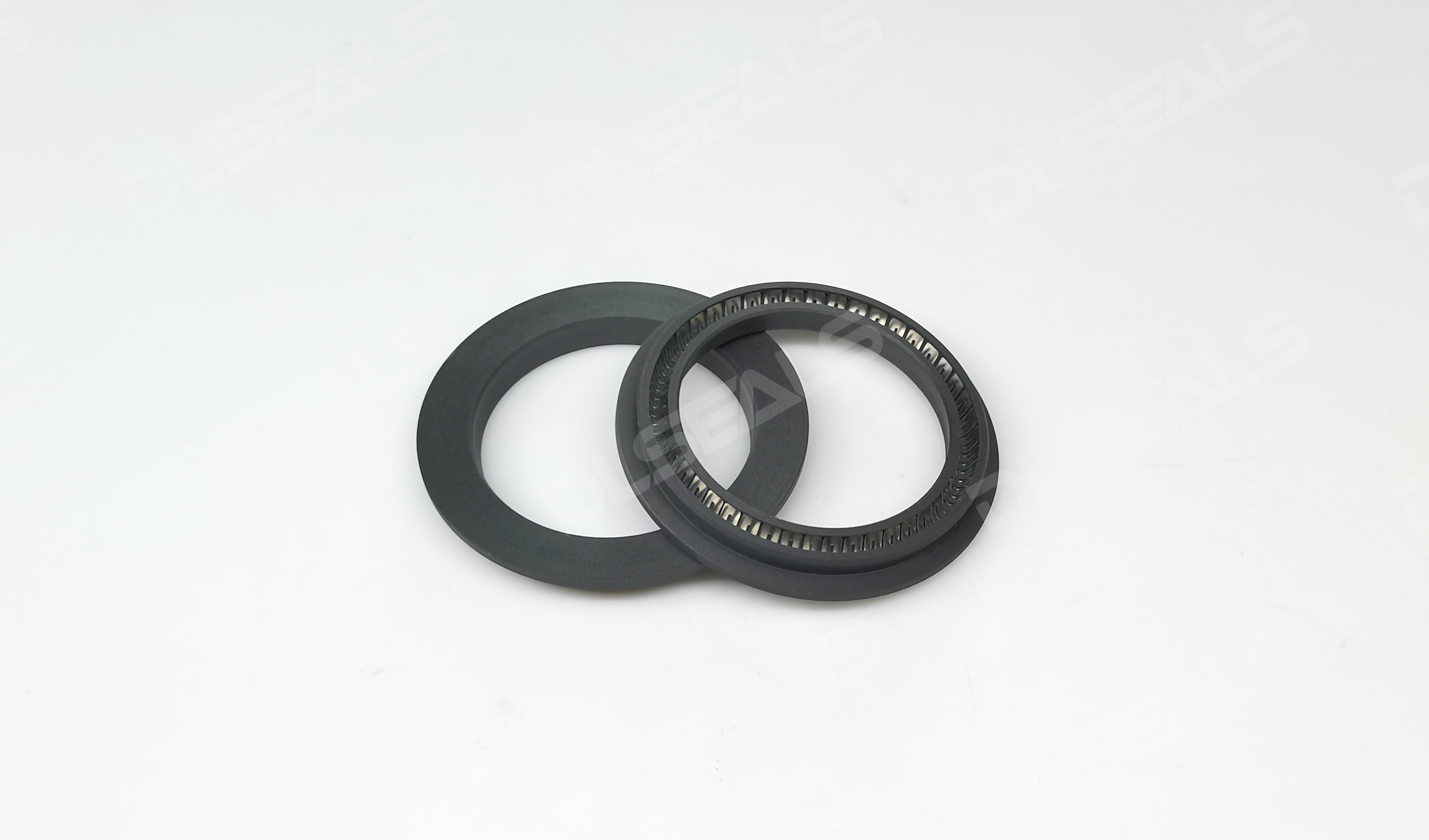News
A2025-01-06

Introduction
Rotary seals are widely used in various industrial equipment, such as pumps, compressors, agitators, and hydraulic systems, to prevent the leakage of fluids or gases. Since their working environment usually involves high pressure, high temperature, high speed, and complex chemical media, the material selection of rotary seals is crucial to their performance and life. Wear resistance is an important indicator for evaluating seal materials, which directly affects the working efficiency and maintenance cost of the equipment. This article will explore how to select wear-resistant materials for rotary seals.
1. Understanding the working environment of rotary seals
Before selecting wear-resistant materials, you first need to fully understand the working environment of the seals, including:
Working temperature: High temperature will affect the mechanical properties and chemical stability of the material.
Working pressure: High pressure environment may cause deformation or wear of the material.
Contact medium: The chemical properties of the liquid or gas have a great influence on the corrosiveness of the material.
Motion speed: High-speed rotation will increase friction and wear.
2. Common wear-resistant materials
The following are some common wear-resistant materials that perform well in different application scenarios:
2.1 Polytetrafluoroethylene (PTFE)
PTFE is a material with extremely low friction coefficient and good chemical resistance. It is suitable for high-speed and low-pressure rotary seals, but may creep under high temperature and high pressure.
2.2 Polyurethane (PU)
Polyurethane has excellent wear resistance and tear resistance and is suitable for medium pressure and speed rotary seals. It has good resistance to oils and most chemicals, but poor high temperature resistance.
2.3 Nitrile rubber (NBR)
Nitrile rubber has good resistance to oils and most chemicals and is suitable for rotary seals in hydraulic systems and the oil industry. It has good wear resistance, but limited high temperature resistance.
2.4 Fluororubber (FKM)
Fluororubber has excellent chemical resistance and high temperature resistance and is suitable for high temperature, high pressure and chemically corrosive environments. It also has good wear resistance, but the cost is high.
3. Considerations for selecting wear-resistant materials
When selecting wear-resistant materials, the following factors should be considered comprehensively:
Wear resistance: the wear rate of the material under long-term friction.
Chemical resistance: the material's tolerance to the contact medium.
Heat resistance: the stability and mechanical properties of the material at high temperatures.
Cost: the cost of purchasing and processing materials.
Processing performance: the machinability of materials and the difficulty of manufacturing seals.
4. Optimization strategy for material selection
In order to optimize the selection of wear-resistant materials for rotary seals, the following strategies can be adopted:
Experimental testing: evaluate the performance of different materials through friction and wear tests, thermal aging tests and chemical corrosion tests.
Case analysis: refer to successful cases in similar application scenarios and select proven materials.
Material compounding: by compounding different materials, combining their respective advantages, such as adding fillers to PTFE to improve wear resistance and heat resistance.
Conclusion
The selection of suitable wear-resistant materials is crucial to the performance and life of rotary seals. By fully understanding the working environment, evaluating the characteristics of different materials, and optimizing the selection through experiments and case analysis, it can be ensured that rotary seals can exhibit excellent wear resistance under various harsh conditions. In practical applications, the selection of materials should comprehensively consider technical performance and economic cost to achieve the best cost-effectiveness.
By scientifically and rationally selecting wear-resistant materials, enterprises can not only improve the working efficiency of equipment, but also significantly reduce maintenance costs and downtime, thereby improving overall production benefits.
[DLSEALS kindly Reminder] Sealing issues? Turn to DLSEALS! As a sealing component manufacturer, we specialize in customizing sealing components, providing a full range of services from design, research and development, production, testing, and more. If you have more information you'd like to know, feel free to contact us directly. DLSEALS's product experts are dedicated to serving you!